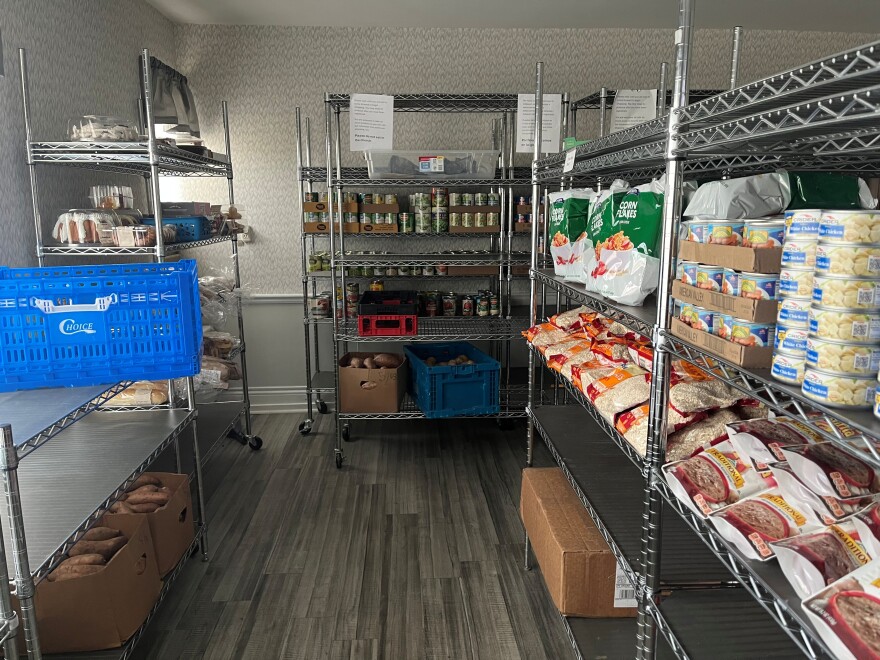As the Senate works through the budget reconciliation bill, it’s unclear at this time how much funding may be cut from food programs, like the supplemental nutrition Assistance Program, or SNAP. A draft of the legislation would make states pay a higher portion of SNAP assistance, and adds work requirements for recipients. Food banks are already seeing an increase in the number of people in need of food assistance, and fewer resources.
Inside the Lion’s Share Food Pantry at St. Marks Lutheran Church in Roanoke, volunteer Julie Bivins helps sort donations that just arrived.
“Cereal, apple juice. We’ve got all kinds of things in here,” Bivins says as she catalogues the items, delivered by a local group, called Do Good Virginia. They collect nonperishable food and toiletries every Monday at their weekly protest and gathering.
The Lion’s Share pantry is entirely volunteer run, including the work by the coordinator, Jacob Gordon, who said donations from the community are a welcomed help.
“The number of folks that we’re serving is up 25-30 percent so far over last year. And that’s been pretty consistent for the last couple months,” Gordon said.
Gordon expects that demand to keep increasing. Meanwhile, funding they usually count on is at risk. At least one grant that supplied fresh produce to the pantry will end at the end of this month, and they’ve also seen fewer donations from grocery stores.
“That’s really been the biggest impact for us, recently,” Gordon said. “Stores aren’t willing to throw as much away at this point as they were, say, six months ago.”
Lisa Clayton works at Feeding Southwest Virginia, which supplies food to this pantry. She said they are worried demand at food banks could escalate if Congress reduces funding for SNAP.
“In some of our counties, we know that one and three children are hungry,” Clayton said. “So the time it's not the time to cut benefits. Too many families are already suffering.”
Feeding Southwest Virginia is one of 200 food banks across the country that receive funding from the federal government for some of their food purchases.
She said a number of economic factors are putting strain on people to afford groceries. “And sometimes we're seeing families that their hours are cut at work so even throughout the month they're not able to have enough disposable income to buy food,” Clayton said.
In their version of the reconciliation budget, the Senate Committee on Agriculture is proposing to extend another program that gives money to food banks, the Emergency Food Assistance Program, until 2031.

This report, provided by Virginia Public Radio, was made possible with support from the Virginia Education Association.


